Relax over the Christmas Recess with our recommended reads
9 min read
From gritty thrillers and Christmas chillers, to stories from the edge of England and a modern twist on a Dickens classic, four book-loving parliamentarians offer their seasonal selections
I have had the enormous pleasure of judging the Crime Writers’ Association’s Gold Dagger contest for the last few years and am an avid fan of the genre. Personally, I love to curl up with a decent murder in the comfort of my home with a glass of something at my elbow. So here are a few recommendations for Christmas presents or Christmas pleasure. I’ve tried to appeal to diverse tastes.
I rather like the historical part of the genre. My favourites include Anna Mazzola, set in different eras and a little spooky; Abir Mukherjee (1920s India), really well written with fabulous complex characters and relationships. Laura Shepherd-Robinson for an evocative Georgian England; Vaseem Khan’s 1950s India with a fabulous female detective and all the complexities that engenders; and if you haven’t met Shona MacLean’s “Seeker” series – set in Cromwell’s England – you are in for a treat.
Cosy crime is all the rage with Richard Osman – but give Elly Griffiths a read, or Robert Thorogood’s The Marlow Murder Club and for something festive try Alexandra Benedict’s The Christmas Murder Game, it contains puzzles for the reader.
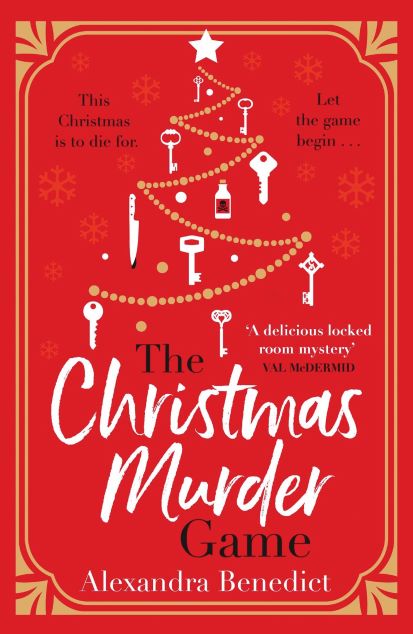 One of the joys of reading as a judge is my introduction to new authors and books I wouldn’t otherwise have tried: the American author SA Cosby is one – a little gritty but fabulous – as is Ray Celestin’s “Jazz Quartet” series set in 1930s New Orleans.
One of the joys of reading as a judge is my introduction to new authors and books I wouldn’t otherwise have tried: the American author SA Cosby is one – a little gritty but fabulous – as is Ray Celestin’s “Jazz Quartet” series set in 1930s New Orleans.
Scandi Noir move over, I’ve found some fabulous Aussie reads. If you like it hot and brooding, try Jane Harper’s The Lost Man, a favourite. Chris Hammer, and Peter Papathanasiou’s The Stoning are also both very good.
There are good reads that I recommend highly; Chris Whitaker’s We Begin at the End, a thumping good tale. Kia Abdullah’s Next of Kin – stay with it – Nicola Upson’s Dear Little Corpses (made my eyes water), and JK Rowling’s “Strike” novels – long but worth it.
I have been understandably constrained by a word count, but have many more I could recommend. Stop me in the corridor or tearoom if you want a more personal recommendation, I will do my best to help.
Lyn Brown is Labour MP for West Ham
I would recommend Bury my Heart at Wounded Knee by Dee Brown to everyone. It is a fascinating and entrancing read about the life of the pre-European people of North America and how their culture was erased by the movement of Europeans through their native and ancestral territories. It is a gripping, empathetic and at times a sorrowful read. It is one of the fastest books I have ever read, it is so “unputdownable” that I had a sore neck from reading it.
Edible Economics: A Hungry Economist Explains the World by Ha-Joon Chang is a fantastic book with tremendous perspectives on history and economics set in a rather amazing juxtaposition of food and recipes which he weaves well into stories of economics. He holds the reader’s attention through topics which other authors might make quite complex. Chang has rendered the topics readily comprehendible with amazing insight and deep understanding. I’d certainly recommend it to all my colleagues.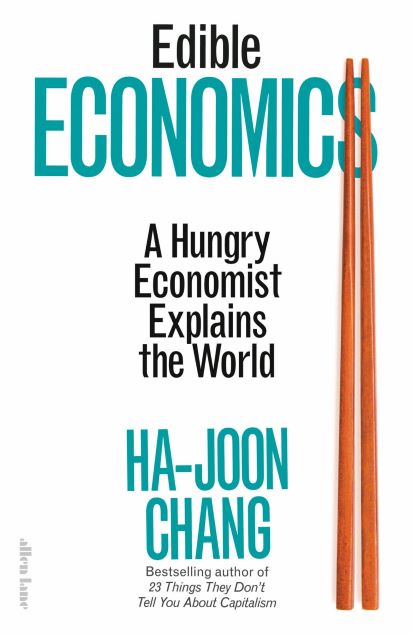
My final recommendation would be Escape from the Anthill by Hubert Butler, Butler came to my attention from the Netflix documentary about him, Witness to the Future. Butler was an Anglo-Irish author who charts a lot of 20th century history, from the end of the First World War onwards. He was a great man of letters and essays in Ireland, with a very international perspective, particularly about the dozen or so European countries which became independent after the end of the War.
Butler came from a family which believed in the British union with Ireland, perhaps due to their religious background. However Butler correctly came to realise Ireland would be better as an independent country. He is all the more interesting for being critical of the policies adopted by the Irish politicians of the early days of independence.
Angus MacNeil is SNP MP for Na h-Eileanan An Iar
My first choice is Nomad Century by Gaia Vince, a brilliant and disturbing analysis of how climate change will affect the world’s migration patterns. Vince argues that, instead of being afraid, we should embrace these new migratory movements. After all, she says, civilisations have all been built on the backs of migration. It is both a disturbing and a hopeful read.
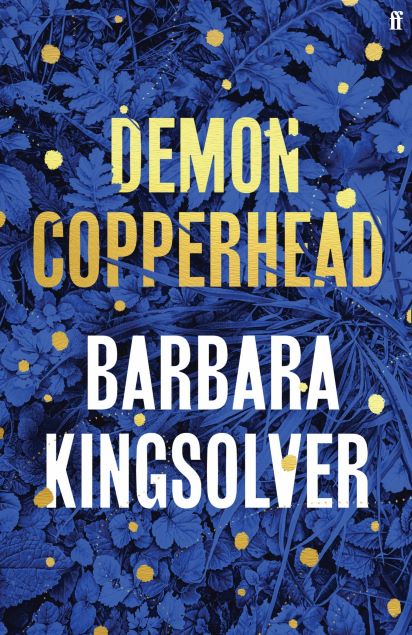 Demon Copperhead by Barbara Kingsolver is a modern-day retelling of David Copperfield, but this time is set in a rural America riven by poverty and contending with the opioid crisis. Through her young hero – Demon Copperhead – Kingsolver explores the broken care system and lack of hope that drives youngsters towards addiction. It’s a page turning read with a powerful message.
Demon Copperhead by Barbara Kingsolver is a modern-day retelling of David Copperfield, but this time is set in a rural America riven by poverty and contending with the opioid crisis. Through her young hero – Demon Copperhead – Kingsolver explores the broken care system and lack of hope that drives youngsters towards addiction. It’s a page turning read with a powerful message.
Lastly, The Climate Book by Greta Thunberg. I saw her speak in London at her book launch. “I edited this because people kept asking me what book they should read about this or that aspect of the climate crisis, so I commissioned 100 experts to write short pieces on their subject,” she said. The result is all you need to know in clear bite-sized pieces. Terrific and with great link sections from Thunberg herself, who knows the science inside out.
Baroness Boycott is a crossbench peer
As the year draws to a close – and what a year – I recommend three very different books. First a most unusual book from Maurice Saatchi, our colleague. Do Not Resuscitate is an extraordinarily small volume – small yet profound in its implications and reflections. He imagines himself, having died in the Peers Guest Room, standing in the ultimate court, being judged as to whether he will be admitted to heaven. Put like that it sounds almost trite but as one reads on one understands why Dr John Hall, the previous dean of Westminster, found it “beautiful and profound”. Saatchi had an amazing marriage to an obviously remarkable woman, the author Josephine Hart. She was the inspiration of his life and for this lovingly crafted and truly unique volume. To attempt to analyse and dissect would be to desecrate. In the words of the Collect for the second Sunday in Advent, “read, mark, learn and inwardly digest”.
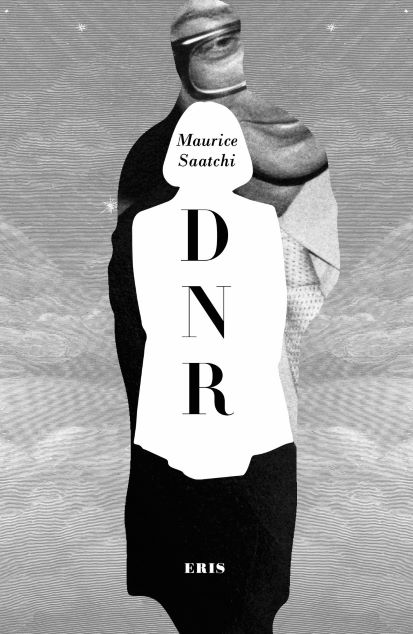 Now something very different: Dickens and Democracy in the Age of Paper – Representing the People. An American academic, Dr Carolyn Vellenga Berman, has had the fascinating idea of looking at Charles Dickens’ novels alongside the publications of a Parliament expanding its horizons as the franchise gradually increased following the Great Reform Act of 1832. Dickens was himself a parliamentary reporter, and one of no mean distinction, whose account of the burning of the tally sticks (which led to the destruction of both Houses in October 1834) is a classic of evocative and satirical reporting. Berman argues that the most socially aware and reforming of novelists should be read alongside the early efforts of the first modern Parliament to analyse some of the social evils of the day.
Now something very different: Dickens and Democracy in the Age of Paper – Representing the People. An American academic, Dr Carolyn Vellenga Berman, has had the fascinating idea of looking at Charles Dickens’ novels alongside the publications of a Parliament expanding its horizons as the franchise gradually increased following the Great Reform Act of 1832. Dickens was himself a parliamentary reporter, and one of no mean distinction, whose account of the burning of the tally sticks (which led to the destruction of both Houses in October 1834) is a classic of evocative and satirical reporting. Berman argues that the most socially aware and reforming of novelists should be read alongside the early efforts of the first modern Parliament to analyse some of the social evils of the day.
But not all prominent parliamentarians were social reformers. Lord Melbourne, one of Queen Victoria’s two favourite prime ministers did not like Oliver Twist, “It’s all among workhouses and coffin-makers and pickpockets. I don’t like those things; I wish to avoid them.” It is worth noting that Victoria’s second favourite prime minister (40 years later) was Benjamin Disraeli, the author of Sybil: or The Two Nations. Things had moved on.
Finally a book which I have enjoyed more than any other I have read this year – and it is something of a self-indulgence to recommend it. For I know of no better way of sharing my love for my native county than by commending Edge of England: Landfall in Lincolnshire by Derek Turner, an Irishman who discovered this second largest, but perhaps least known, of our counties a quarter of a century ago. Whilst many of his contemporaries were leaving London for better known and more famously beautiful counties, he bought an unprepossessing house on the east coast and so began a love affair which is honestly, evocatively, indeed elegiacally, conveyed.
Ties of family, and friendship, kept me in touch with Lincolnshire throughout my 40 years as a Staffordshire MP but I always felt a thrill of familiarity when I returned. My heart never failed to leap up when I saw Lincoln’s cathedral on its high hill – and I now live in its shadow.
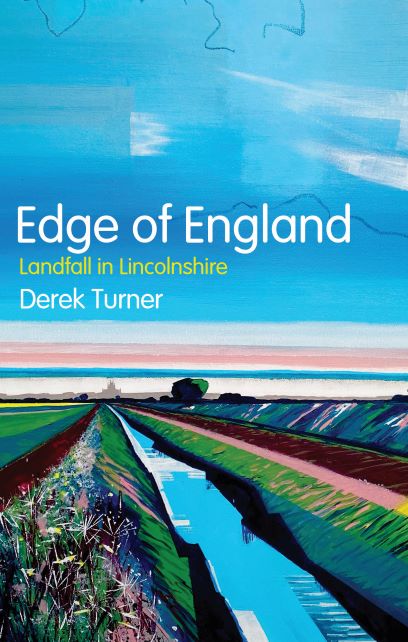 Derek Turner has discovered all my favourite places for himself, discovered too why the county – with its rather desolate flatness near the Wash – has been so dismissed by so many for so long. With all the zeal of an erudite convert he is adept at conveying his enthusiasm for our churches and our countryside. And if for centuries we were off the beaten track we have produced some very remarkable people who quite literally changed the course of history: among our bishops, St Hugh and Robert Grosseteste, greatest of medieval scientists; John Wycliffe, Isaac Newton, Joseph Banks and Alfred Tennyson. Not to mention Lord Burghley, Elizabeth I’s great minister – and Margaret Thatcher.
Derek Turner has discovered all my favourite places for himself, discovered too why the county – with its rather desolate flatness near the Wash – has been so dismissed by so many for so long. With all the zeal of an erudite convert he is adept at conveying his enthusiasm for our churches and our countryside. And if for centuries we were off the beaten track we have produced some very remarkable people who quite literally changed the course of history: among our bishops, St Hugh and Robert Grosseteste, greatest of medieval scientists; John Wycliffe, Isaac Newton, Joseph Banks and Alfred Tennyson. Not to mention Lord Burghley, Elizabeth I’s great minister – and Margaret Thatcher.
I shall return to this book again and again and I warmly commend it to anyone who does not know what is, in so many ways, not just the edge of England but the embodiment of England.
Lord Cormack is a Conservative peer and life president of The House
* Demon Copperhead courtesy of Design by Faber / Cover artwork: No.4 © J&A Paunkovic Studio
PoliticsHome Newsletters
Get the inside track on what MPs and Peers are talking about. Sign up to The House's morning email for the latest insight and reaction from Parliamentarians, policy-makers and organisations.
